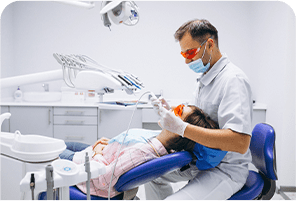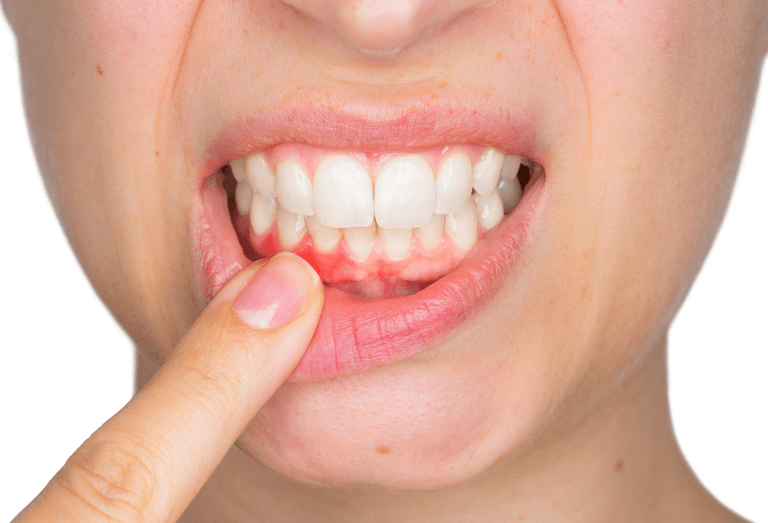Receding Gums Treatment
Receding gums, also known as gum recession, occur when the gum tissue that surrounds and protects the teeth gradually pulls back or wears away, exposing more of the tooth’s surface and even the tooth’s root. This condition can lead to increased sensitivity, tooth decay, and potential tooth loss if not addressed. Though the primary factor is often a thinner tissue biotype, several factors can contribute to receding gums:
Poor Oral Hygiene
Inadequate or improper brushing and flossing can lead to the buildup of dental plaque and tartar along the gumline. This can irritate and inflame the gum tissues, eventually causing them to recede.
Gum Disease (Periodontal Disease)
Gingivitis and periodontitis are gum diseases that can cause inflammation and damage to the gum tissues. As the infection progresses, the gum tissue may recede, exposing the tooth’s roots and creating pockets between the teeth and gums.
Aggressive Brushing
Brushing your teeth with excessive force or using a toothbrush with hard bristles can cause the gum tissue to wear away over time
Genetics
Some people are more predisposed to gum recession due to their genetic makeup. If your family members have a history of gum recession, you might be at a higher risk.
Tobacco Use
Smoking or chewing tobacco can hinder the blood supply to the gum tissues, making them more susceptible to receding.
Bruxism (Teeth Grinding)
Habitual teeth grinding or clenching can place excessive pressure on the teeth and their supporting structures, potentially leading to gum recession.
Misaligned Teeth
Teeth that are not properly aligned can cause uneven pressure on the gums when you bite or chew, increasing the risk of recession.
Trauma:
Trauma to the gum tissue, such as from injury or accidents, can cause the gums to recede in the affected area.
Hormonal Changes
Hormonal fluctuations, such as those occurring during puberty, pregnancy, and menopause, can make gums more sensitive and prone to recession.
Age
As you age, the gum tissues naturally tend to recede to some extent. However, proper oral care can slow down this process.
Medical Conditions:
Certain medical conditions, such as diabetes and autoimmune disorders, can affect gum health and contribute to gum recession.
Malocclusion
Bite issues and misaligned teeth can result in abnormal forces on the gums, leading to recession over time.
It’s important to note that gum recession can be a gradual process, and it’s not always immediately noticeable. Regular dental check-ups are crucial for early detection and management of any gum-related issues. If you’re experiencing gum recession or other oral health concerns, it’s recommended to consult with a dentist or periodontist who can assess the situation and recommend appropriate treatments to prevent further recession and maintain overall oral health.
Treatment
The appropriate treatment for receding gums depends on the underlying cause and the severity of the condition. Early detection and intervention are crucial to prevent further gum recession and address any related issues. Here are some common treatments for receding gums

1. Gum Grafting
The most common way of treating gum recession is a simple gum surgery that generally takes about an hour done under local anesthetic. During this procedure, tissue is taken from another area of your mouth (or a donor source) and grafted onto the receded area. This can help cover exposed tooth roots and enhance gum tissue

2. Gum Repositioning
This minimally invasive technique involves making small incisions in the gum tissue and repositioning it to cover exposed tooth roots. It requires no sutures and typically results in less discomfort and a quicker recovery compared to traditional gum grafting. This is for patients who have thick tissue that has receded.

3.Orthodontic Treatment
If misaligned teeth or bite issues are causing gum recession, orthodontic treatment like braces or clear aligners can help realign the teeth, distributing forces more evenly on the gums.



